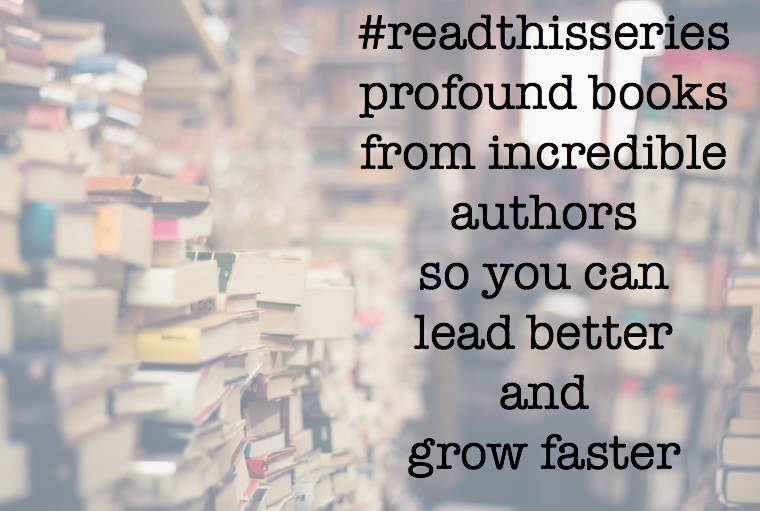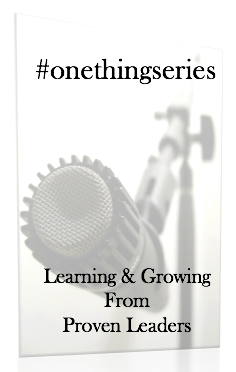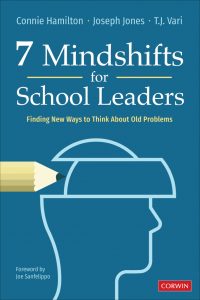
Listening is a skill. Great leaders listen well and consciously develop their listening skills over time. Melissa Daimler, who led the Global Learning & Organizational Development team of Twitter at one time, tells Harvard Business Review readers that “listening can be a challenging skill to master.” However, she encourages readers to to try three practical strategies to improve their listening skills: 1. Look people in the eye, 2. Create space in your day, and 3. Ask more questions. This is great advice for leaders looking to hone their technical listening abilities. Leaders have to practice active listening throughout the day to hear from the people around them and ask a variety of questions to understand the complexities of what people are facing. But, the value of listening transcends the skill of doing so.
It’s about the people. Listening attunes the leader to the inner workings of the organization. Leaders who surround themselves with the right people have a better opportunity to hear an accurate depiction of the culture. But, sometimes we have to listen through the noise to hear the truth and not just what the few have to say. Reeves (2009) says that volume, in decibels, is not always the same as volume, in terms of the relative number of people who are making the noise. Great leaders know that one aspect of listening is knowing what and who you should be listening to. The benefits are astounding.
Truly listening takes discipline. Listening for understanding takes time to master. It requires a collaborative spirit, which means that one outcome is an acceptance of new ideas. It’s a disciplined approach that allows leaders to listen for new perspectives that might contradict their own. This means that “pure listening is about letting go of control” (Brach, 2003). Truly opening yourself up to what is being said creates personal connections with people. These connections produce a window that allows leaders to see things they originally could not. Possessing this discipline as a leader is “a central competence for success” in any organization (Charan, 2012). This is the prerequisite to achievement.
Leaders know to listen. Our desire at TheSchoolHouse302 is to create a space where great leaders have the opportunity to share their thoughts to help others learn and grow. We are fortunate at TheSchoolHouse302 to recently connect with and learn from several leaders through our #onethingseries. Four powerful interviews prompted our focus on listening because all four leaders brought a unique perspective to the table when it comes to the importance of listening as leaders. We put these together into four important nuggets of wisdom that you need to know today to lead better and grow faster. They describe listening as a purposeful and powerful skill that directly impacts the organization, and, more importantly, the people.
#1. Know their context. Dave Telep, Director of Scouting with the San Antonio Spurs, tell our #onethingseries listeners to understand the context of the people they serve before passing judgement or making decisions — context before content. If you haven’t heard the interview, listen here.
Tip: Knowing the context of another person means asking yourself key questions as you listen: What experiences do they have that shaped this opinion? Who do they associate with who might also share these sentiments? How can I respond with empathy? Pure listening, as described by Tara Brach, requires you to open up to what is being said and not attempt to “control what they are saying or try to impress them with what we are saying” (2003). It’s far more effective to listen openly to fully understand the context of the person and what they are saying than it is to listen to your own thoughts and ideas, ultimately controlling the conversation, while they are speaking.
#2. Hear what they are saying. When we interviewed Dr. Lilian Lowery, she shared that leaders have to go beyond listening to really hear what people are saying. She says that people make decisions with their hearts and minds and only great listeners can hear beyond the words that are being spoken to tap into the needs of people. If you haven’t heard the interview, listen here.
Tip: One key strategy that Dr. Lowery was referring to in her interview was having several advisory groups to guide your thinking. Assemble the right people and then listen to what they have to say. Recognize that in many ways we are bound by our own perceptions and we need to hear not only what people are saying but also why they are saying it. Getting a diversity of perspectives is key to making the right decisions.
#3. Listen to build partnerships. Dr. Rob Rescigno, Dean of the College of Business at Wilmington University, tells #onethingseries followers that when you truly listen well, you can build connections. These connections turn into partnerships and new doors open whereby new heights are reached and greater success is achieved. If you haven’t heard the interview, listen here.
Tip: Seek new people with whom to interact and listen to them. Great business people have tentacles reaching into every facet of their communities. They engage with new and diverse groups all the time and they truly listen to build partnerships. These newly formed relationships are often about what we can do for one another, which stems from listening to each others needs and responding with care and support.
#4. Follow others in your field. Listening also means following others. Principal-EL, internationally recognized educational leader, tells us that he continuously listens to those in the field. He shared how he follows Twitter’s #satchat as a resource to hear from educators from all over about the great things they are doing and gleans ideas and strategies to replicate in his school. If you haven’t heard the interview, listen here.
Tip: Listening to multiple sources from a variety of platforms is critical. It’s important to remain humble and maintain a spirit of openness towards leadership lessons so we can learn from others, even from people we don’t know but whom are willing to share their story. Embracing a listening first attitude will equip us to lead better.

Listening is one of the most powerful leadership tools there is, and when done well, the results are limitless. “When people don’t listen carefully to others they can easily make assumptions — too often the wrong assumptions — about what other people mean” (Crocket, 2017). These four nuggets of wisdom come from intelligent respected leaders who know that leadership begins with humility. Listening to others starts with knowing that you don’t have all the answers and you need to hear what others are saying. Next time you’re in a position to listen deeply, be sure to explore the context of the speaker, really hear what they are saying, build partnerships and systems of support, and follow first to learn before leading.
TheSchoolHouse302 is about getting to simple and maximizing effective research-based strategies that empower individuals to lead better and grow faster.
Let us know what you think of this #SH302 post with a like, follow, or comment.
Joe & T.J.
Brach, T. (2013, April). The sacred art of listening. Retrieved September 20, 2017, from
https://palousemindfulness.com/docs/sacred-art-of-listening.pdfCharan, R. (2012). The discipline of listening. Harvard Business Review.
Crocket, R. (2017). Listening is critical in today’s multicultural workplace. Harvard Business Review.
Daimler, M. (2016). Listening is an overlooked leadership tool. Harvard Business Review.
Reeves. D. (2009). Leading change in your school: How to conquer myths, build commitment, and get results. Alexandria, VA: ASCD.




 7 Mindshifts for School Leaders: Finding New Ways to Think About Old Problems.
7 Mindshifts for School Leaders: Finding New Ways to Think About Old Problems. 


